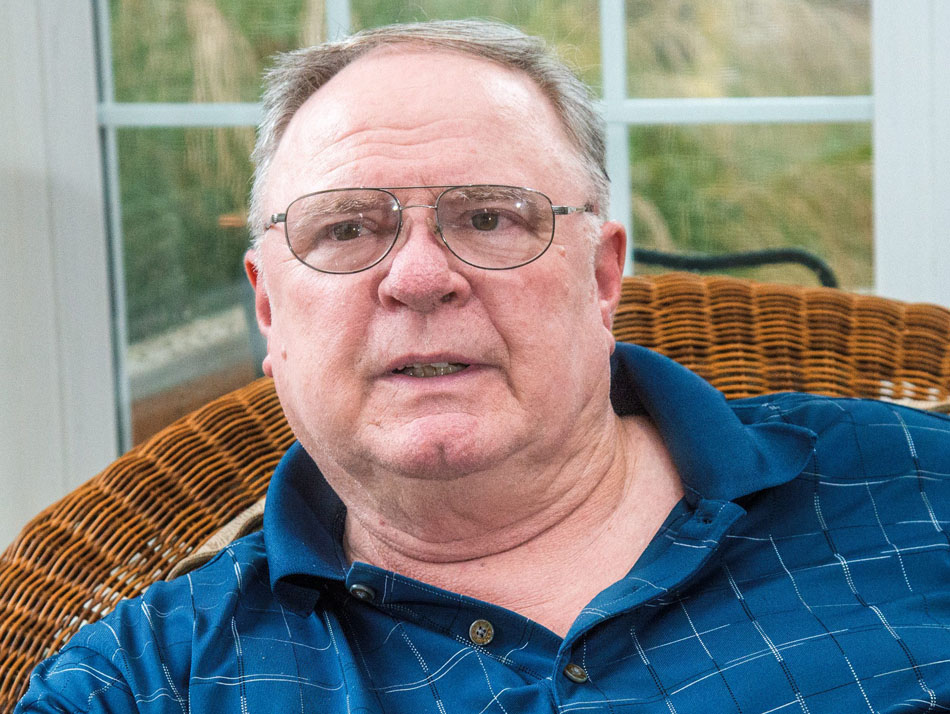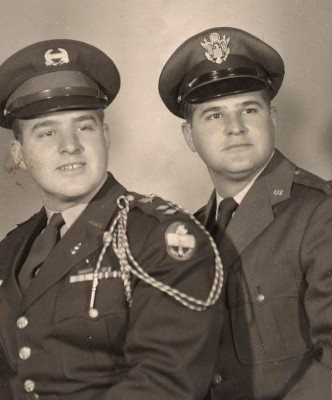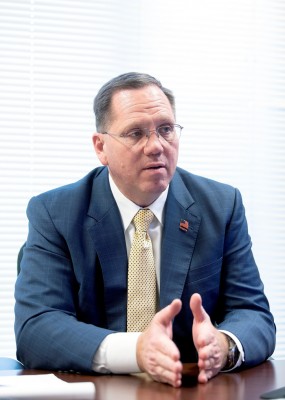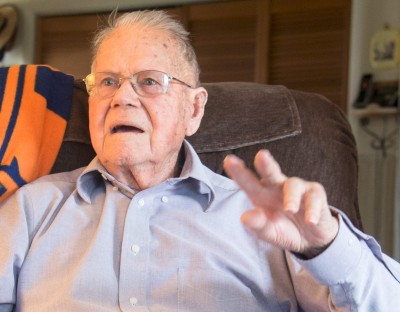Bill Hensch
By Paul Wood

Photo By Robin Scholz/The News-Gazette
SIDNEY — Bill Hensch saved a man shot in the back on a cargo plane. To this day, he doesn’t even know if the soldier was American or Vietnamese.
Hensch, 73, an Iowa native, enlisted in the Air Force to avoid the draft into the Army in the Vietnam War, and served from 1964 to 1968, then had a long career in the Illinois State Police.
He earned the Distinguished Flying Cross for saving the soldier’s life, though the citation came after he was out of the service, and he was originally asked to pay for the medal himself.
After basic training and technical school, Hensch was assigned to Chanute Air Force Base. At first, he worked on support airplanes in the Chicago area.
But in the 4432nd Tactical Airlift Squadron, the officer asked for a flight engineer.
Never volunteer.
“They asked if I got airsick, and I should have said yes,” he says, laughing.
In 1967, on his first anniversary with his wife, Shari, he learned he was destined for Vietnam.
“It was a sad night,” he says, but the couple has stayed together all these years.
He became a crew member on a C-7A Caribou, a prop cargo plane.
It was an unusual plane, designed to take off and land within 550 feet. Loaded or unloaded, he adds.
Some of his missions were to deliver mail; others were to supply smaller outposts, even villages, or move troops.
Often, that meant dirt or grass runways, “with ground fire from Charlie,” or air-dropping materials, even in a monsoon.
His first six months were in Vung Tau, then Can Tho. He flew more than 200 missions.
On Oct. 15, 1967, the plane took off from a small village.
“I had three vests: one on me, one on the seat, and the other beneath the seat,” he recalls.
“When we took off, Charlie was waiting for us. As soon as the gear came up, we were hit by hostile ground fire. The pilot and co-pilot started rocking the airplane so they couldn’t get a bead on us.”
With the plane rocking back and forth, the mail came loose from its tiedowns.
“The soldier next to me clicked open his seat belt, trying to stop the mail from falling. As soon as he got up, he was shot in the back. I took a vest and did everything possible to help him,” he says. “I used everything in there to stop the bleeding; I did the best I could with what I had.”
After landing at a nearby camp that had a MASH unit, the crew had to sit and wait while mechanics checked the airplane.
“During that wait, we found out he came out of surgery. The bullet clipped his kidney and grazed his spine and lodged in his left lung,” he says. “We learned later he had survived.”
It was just another day, a dangerous one.
“There were 102 bullet holes in our aircraft that day, and I never thought of anything about what I did, or our flight crew did, until after I was discharged from the Air Force,” he says.
After retirement from the state police, he researched the action and finally got his medal.
Now retired after working at the local elevator, he’s happily married to Shari. They have two sons, Chad and Kyle Hensch, both firefighters, and four grandchildren.
Do you know a veteran who could share a story about their military service? Contact staff writer Paul Wood at pwood@news-gazette.com.
Read more stories from local veterans:
 The Ellenberger-Brown family
Southwest of Champaign, Richard and Sheryl Brown Elllenberger live a life that has included being officers — she a capta …
The Ellenberger-Brown family
Southwest of Champaign, Richard and Sheryl Brown Elllenberger live a life that has included being officers — she a capta …
 Mike Kessel
MAHOMET — Major Mike Kessel gives God credit for saving him in Iraq after a series of ambushes. During “the Battle of Ho …
Mike Kessel
MAHOMET — Major Mike Kessel gives God credit for saving him in Iraq after a series of ambushes. During “the Battle of Ho …
 Warren McCarty
RANTOUL — From an injury when a bazooka backfired, to meeting starving Germans, to making a deal with a Russian soldier, …
Warren McCarty
RANTOUL — From an injury when a bazooka backfired, to meeting starving Germans, to making a deal with a Russian soldier, …